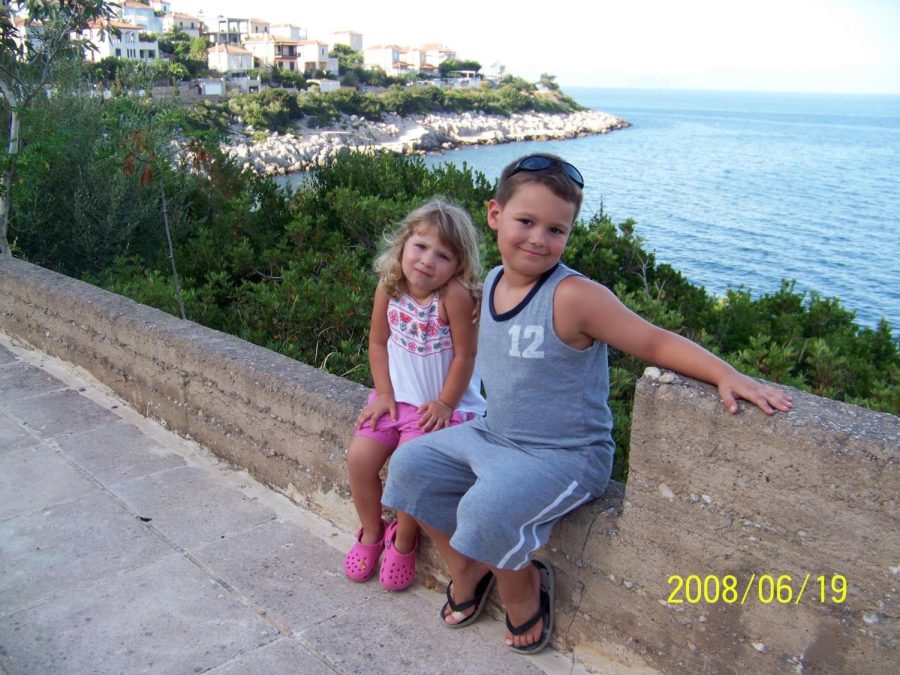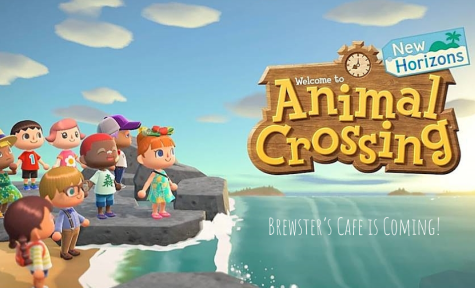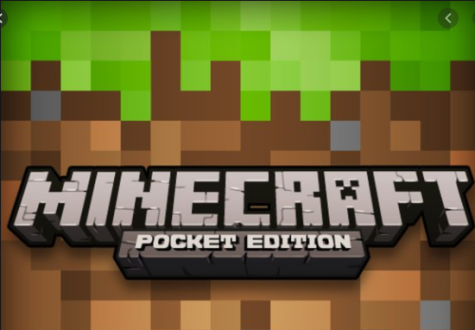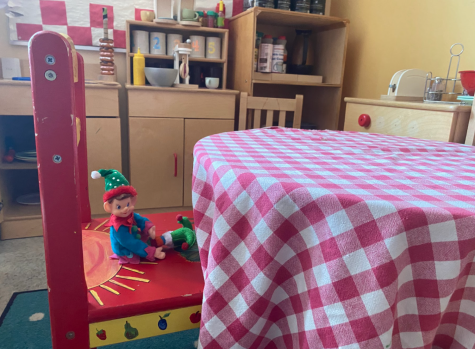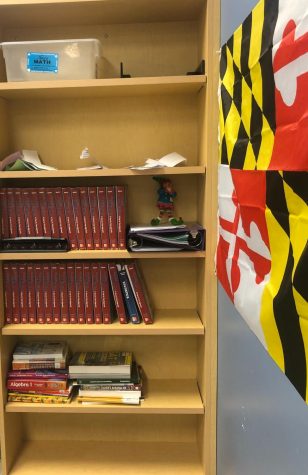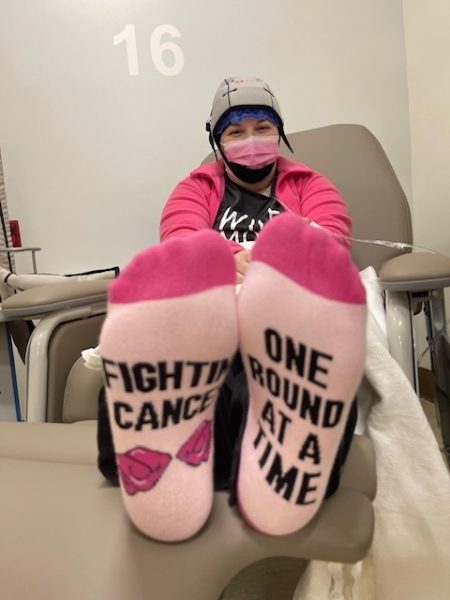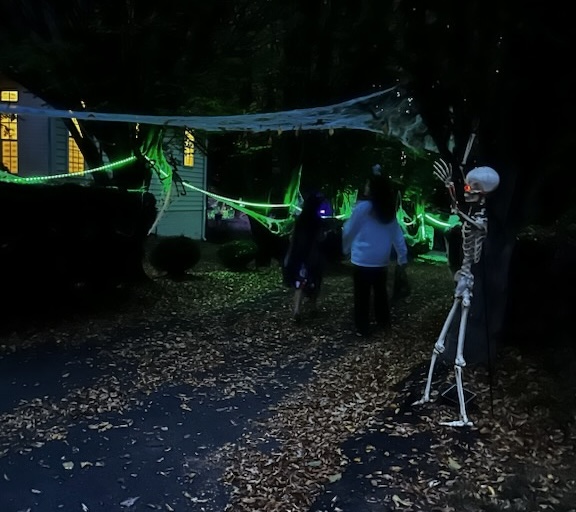My Greek Family: Reconnecting and keeping culture alive for the next generation
The highest praise is to hear, “It doesn’t get more Greek than that.”
My older brother and I on our first trip to Greece.
“It was easier to blend in, adopt a palatable Midwestern identity, and just completely ignore your cultural background,” said Belinda Cai in an article about her Chinese-American identity.
Today, this is how a lot of kids in immigrant families grow up feeling.
For many years, I pushed my cultural identity to the side and didn’t refer to being Greek. Especially being someone of second generation, it was so much easier to ignore where my family came from because bringing the topic up causes a lot of questions.
One of the hardest parts about growing up tackling two identities is not feeling included in either of them. Personally, it was always easy to identify with my American side and difficult to see myself as Greek. This is an even more difficult problem harder for first generation Americans–ask my mother.
“During Easter time, I had a feeling of not being American enough. We dyed red eggs, not bright colorful ones like my friends…I thought everyone did that until I got older and went to a friend’s house for Easter and saw how different it was,” said first generation Greek-American Christina Waser.
For me, what is the most difficult was not feeling Greek enough. The language has played a big part in this. I grew up with a Greek mom (and a non-Greek dad) who were born and raised in the U.S, so it was hard for my mom to keep her language alive at home. All the Greek I’ve learned is from spending time with my grandparents, but I haven’t picked up too much.
Not keeping the language alive is something that affects more than just those who didn’t grow up speaking it. It can make communication between generations harder.
“I wish I would have spoken to you in Greek more so you could learn the language. That’s a huge regret I have,” said Waser.
While talking to my grandparents I hadn’t realized how much language had really been lost just between two generations. As they struggled to answer the more convoluted questions through their second language, I felt so guilty for not being able to help or translate anything they really wanted to convey.
I shouldn’t have to pull out a translator to have an in-depth conversation with my grandparents.
Some of the most common Greek phrases and words used in my family are, “agapi mou” meaning my love, “ela edo” meaning come here, and “pou pas” which means where are you going.
While language is growing more difficult to keep alive over time, there are many other aspects that can be carried on to increase understanding of the cultures. For example, food is something that is often very important to sharing cultures and is a form of connection.
“I did cook lots of Greek food and take you to a Greek Orthodox Church,” said Waser.
I can recall memories having to do with Greek food while growing up. I remember how much I loved rolling out the filo (dough) to make spanakopita with my Grandmother and later take it for lunch.
As much as I enjoyed eating Greek food, it later created the awkward lunchtime moments. I remember the first time I viewed my background negatively when I was in elementary school. One day, I brought spanakopita for lunch. When I went to eat it, people at my table began to point at it and say that it was gross, even though they had never tried it. This moment led to a period time where I felt embarrassed by my identity.
I would be embarrassed when my family would be loud in public and people would hear them speak Greek and their accents. This is a pretty common experience growing up in immigrant families go through. “I was always embarrassed when yiayia and papou would speak to me in Greek around my friends so that they didn’t know what we were talking about,” said Waser.
Luckily over the years that embarrassment turns into pride. “As I got older I thought it was pretty cool we could say stuff to each other and people wouldn’t know what we were talking about.” said Waser.
As I grew up, I started to like Greek music and family gatherings. When that starts to change, you start to realize all the cool reasons you have to appreciate/represent your culture and decent with pride.
“Every time I watch the Olympics, I feel a tremendous sense of pride knowing that Greece was the country where the Olympics and competition originated. I also feel a sense of pride when I think back to my grandparents and how hard of a life they had in Greece and how hard they worked to get to the USA to make a better life for their children and grandchildren,” said Waser.
After coming to terms with one’s identity, the process of reconnecting with family can be very difficult. Reconnecting comes with discouraging thoughts of not being enough. I remember the last time I was in Greece – I went to a party in the neighborhood with my family and it was challenging to develop the steps to Greek dance that I had not done since I was little.
“To reconnect people should get together with family, go to church and do activities through associations,” said Greek native Tom Spiropolous, my grandfather.
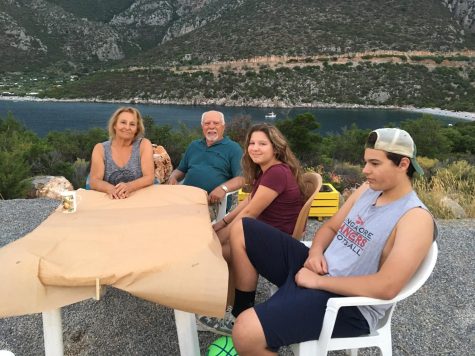
I have begun to reconnect to my Greek life by spending more time with family and embracing my ability to try all types of Greek foods.
During a family gathering in April 2021, I felt connected to my culture. I remember listening to stories about my family from when they lived in Greece, as well as listening to Greek music during car rides while my family sang along and talked about the artists.
On the same trip, I ate fakes (Greek lentil soup) for the first time. I loved them! It made my family happy and proud to see their culture being expanded and passed down through a loved one. They shared their food experiences with me and made me more informed of how they grew up.
“Look, she’s eating fakes with vinegar, feta cheese, and psomí (bread). She’s 100 percent Greek,” said my grandma on the phone with my uncle.
“It doesn’t get more Greek than that,” said my uncle.
These kinds of moments really make me smile. I genuinely love Greek food, and seeing my family’s heartfelt reactions makes me feel much closer to my Greek side. Even not being 100 percent Greek, my grandmother felt confident enough in my love and connection to my culture to say something like that.
In order to keep in touch with culture, it’s important to strengthen family connections and keep up traditions that stem from them.
“I like traditional things,” said Greek native Voula Spiropolous, my grandmother.
Traditions are a huge part of culture and something that can be passed through many generations to come.
Though I have started the re-connection process in relation to my Greek culture, there is still much more to learn. Culture is so important and something we should embrace. No matter how many generations or how much culture has been lost over time, It is never too late to start getting in-touch.
Your donation will support the student journalists of Linganore High School. Your contribution will allow us to purchase camera/recording equipment and software. We hope to raise enough money to re-start a monthly printed issue of our paper.


